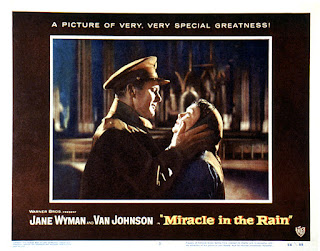 FALCON CREST
FALCON CREST CBS Television series 1981 - 1990. Created by Earl Hamner Jr. NOTE: Out of several writers, Hamner wrote the most episodes.
The complete
first season of
Falcon Crest is available on DVD, and the show is quite entertaining. Airline pilot Chase Gioberti (Robert Foxworth) learns that his father, Jason, has passed away in an accident, and flies to California with his wife, Maggie (Susan Sullivan), to attend the funeral. There he learns that he has inherited a small 50 acre portion of the huge Falcon Crest vineyard, 500 acres of which belong to his aunt Angela Channing (Jane Wyman). Chase doesn't realize that his father didn't really die in a drunk driving accident, and that Angela has covered up the facts of his death because she would have to turn over far more of Falcon Crest to her nephew. Chase regrets that he never got to know his father very well, and decides to stay in California and try to make a go of his 50 acres, although the members of his family are very conflicted as to his decision. This includes his daughter Vicki (Jamie Rose) and son Cole (Billy R. Moses).
But the Channing family is in worse shape than the Gioberti's. Angela's daughter Emma (Margaret Ladd), never too stable to begin with, is positively bonkers since her Uncle Jason's death. Her sister, Julia (Abby Dalton), is a virtual slave to her mother's whims, and sees the same thing happening to her more resistant son, Lance (Lorenzo Lamas). Other characters include -- as the season progresses -- Angela's ex-husband (Stephen Elliot); Chase's mother (Lana Turner); Melissa Agretti (Ana Alicia), who comes between Cole and Lance; Julia's ex-husband Tony (John Saxon); Chase's right-hand man Gus (Nick Ramos); and his son, Mario (Mario Marcelino), who becomes Vicki's boyfriend.
Angela, superbly played by Wyman, is a ruthless person who cares more for the land of Falcon Crest than she does for members of her family, although she always believes she's doing the right thing. She prevents Emma from getting the psychiatric treatment she clearly needs because she's afraid Emma will inadvertently reveal the truth about Jason's death. [Although very well played by Margaret Ladd, who is an excellent actress, Emma's nutso act does become a bit of a bore.] As the first season progresses, Chase and Maggie are eventually clued in to Angela's duplicity, although why they continue to talk to her and attend her parties after her perfidy has been revealed is a big question.
The other cast members, especially Foxworth, Sullivan and Dalton, acquit themselves quite nicely. John Saxon and Lana Turner score in one episode apiece, although they returned for more appearances in later seasons. Marcelino is memorable as the appealing Mario, as is Mel Ferrer as Angela's very sly lawyer.
Falcon Crest lasted for nine seasons, and these episodes indicate why the drama -- which became more firmly ensconced in the soap opera category as it developed -- was such a guilty pleasure. Cast members in future seasons would include Rod Taylor, Mariska Hargitay, Robert Stack, Gina Lollobrigida, Ron Rifkin, Appolonia Kotero, Morgan Fairchild [in a very nice turn as a victim of incest] and many others.
Bill Conti's excellent theme music is a decided plus.
Verdict: Perfect to watch with a glass of wine! ***.
























